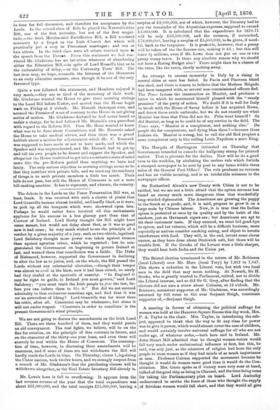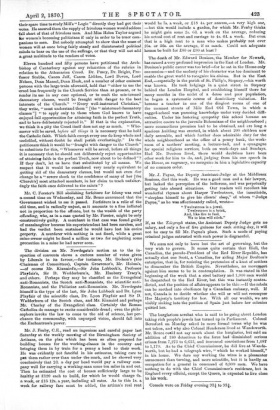A meeting in favour of obtaining the political suffrage for
women was held at the Hanover-Square Rooms this day week, Mrs. P. A. Taylor in the chair. Mrs. Taylor, in introducing the sub- ject, appeared to thi■k that the way to fit any class for power was to give it power, which would almost cover the case of children, and would certainly involve universal suffrage for all who are not under age, of whatever order,—both here and in Ireland. Mr. John Stuart Mill admitted that he thought women-voters would fall very much under ecclesiastical influence at first, but this, he said, was only just, as the ministers of religion had been the only people to treat women as if they had minds of as much imliortance as men. Professor Cairns supported the movement because he thought it would do women more good than it would do the Con- stitution. Mrs. Grote spoke as if victory were very near at hand, talked of the good ship as being in Channel, and the time being come for taking the Parliamentary pilot ou board. Lord Amberley endeavoured to soothe the fears of those who thought the supply of frivolous women would fall short, and that they would all give
their spare time to studyMill's " Logic " directly they had got their votes. He assured them the supply of frivolous women would seldom fall short of that of frivolous men. And Miss Helen Taylor argued for women's becoming politicians if only in order to be truer com- panions to men. But nobody attempted to show that the mass of women will at once bring fairly steady and disinterested political
• minds to bear on the use of the suffrage, or that they will not add -a great multitude to the vendors of votes.



































 Previous page
Previous page